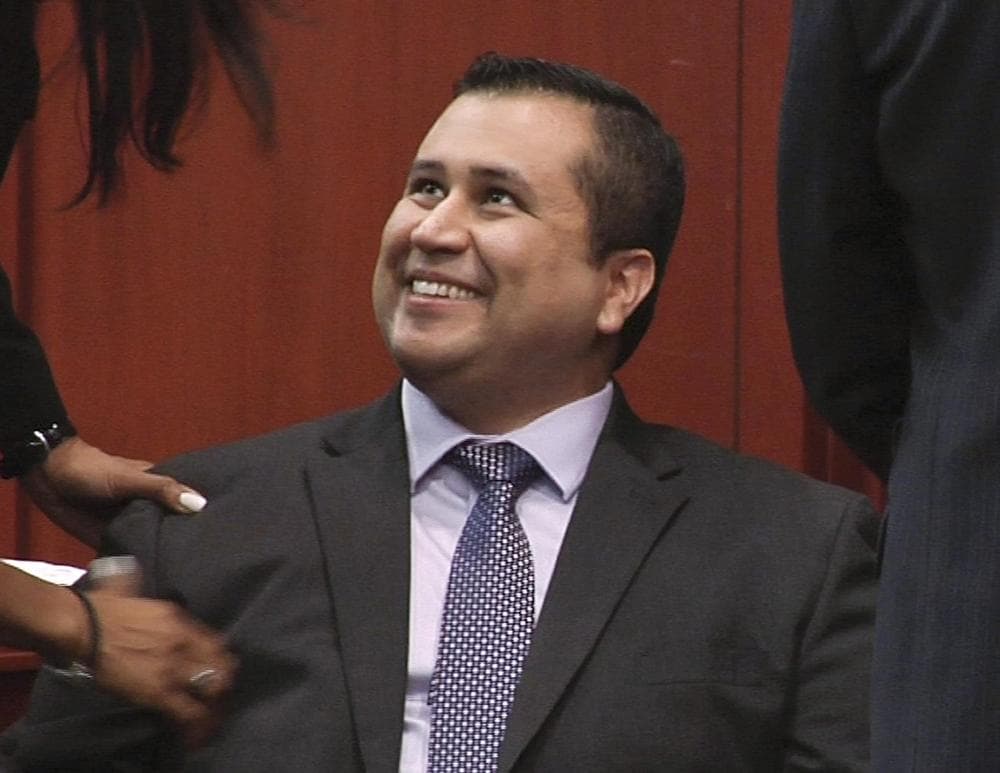Advertisement
No Race In The Courtroom, No Justice For Trayvon Martin
What does it say about a justice system that precludes prosecutors from focusing on race as a factor in the fatal shooting of an African-American teenager armed only with a soft drink and a bag of Skittles?
That our recent commemorations of the 50th anniversary of key events in the Civil Rights Movement are as superficial as our understanding of the central role that race still plays in the American story, five decades after the murder of Medgar Evers?
That racial fears are so deep that silence is preferable to progress?
Do we really think Martin’s race had no influence on Zimmerman’s characterization of a young man walking along at an early hour in the evening as “a punk?”
An even worse miscarriage of justice than the one delivered in Sanford, Florida on Saturday would be the refusal of this country to engage in the very discussion that Judge Debra S. Nelson banned from her courtroom in the trial of State of Florida vs. George Zimmerman.
Prosecutors, she ruled last month, could argue that Zimmerman “profiled” Trayvon Martin as a likely intruder because the self-appointed neighborhood watchman did not recognize the young man in the hooded sweatshirt walking back from the corner store to the townhouse he was visiting with his dad. They could not argue that Zimmerman “racially profiled” Martin.
There is a world of difference in those instructions, one grounded in the myth of a post-racial America, the other grounded in reality. “Punks,” Mr. Zimmerman said to the police dispatcher about Martin, adding a profanity. “They always get away.” Do we really think Martin’s race had no influence on Zimmerman’s characterization of a young man walking along at an early hour in the evening as “a punk?” Isn’t race, at the very least, a reasonable line of inquiry?
An all female jury, five whites and one Hispanic, had to know race was a subtext in this case; they were ordered to focus, instead, on the narrower question of whether Zimmerman felt in danger when he pulled the trigger and extinguished the life of an unarmed high school student who happened to be black. That was a tall hurdle for prosecutors in a state with a stand-your-ground law that all but presumes that the shooter is acting in self-defense.

Instead of asking why Zimmerman got out of his car despite orders from the police dispatcher not to follow Martin, the trial became an exercise in conjecture about which man was more afraid: the unarmed young man being stalked by the older, bigger man with a gun or the armed man faced with the unarmed teen who may have had the temerity to fight back.
The courtroom proved the wrong venue to find justice. Eliminating race from the prosecution’s case stunted our ability to understand what really happened on the night of February 26, 2012 in that gated community.
There are other venues if we are willing to have that conversation. In 2008, Senator Barack Obama made a frank and painful speech about the state of race relations in this country. He was running for president, but that fact did not dissuade the Illinois Democrat from telling Americans, black and white, some hard truths about this nation, about ourselves.
“Even for those blacks who did make it, questions of race, and racism, continue to define their worldview in fundamental ways,” the future president said. “…That anger may not get expressed in public, in front of white co-workers or white friends. But it does find voice in the barbershop or around the kitchen table... it finds voice in the church on Sunday morning, in the pulpit and in the pews. The fact that so many people are surprised to hear that anger in some of Reverend Wright's sermons simply reminds us of the old truism that the most segregated hour in American life occurs on Sunday morning….
Instead of asking why Zimmerman got out of his car despite orders from the police dispatcher not to follow Martin, the trial became an exercise in conjecture about which man was more afraid.
“The anger is real; it is powerful; and to simply wish it away, to condemn it without understanding its roots, only serves to widen the chasm of misunderstanding that exists between the races.”
How little has changed in five years, despite the presence of a black man in the White House.
“Trayvon Benjamin Martin is dead because he and other black boys and men like him are not seen as a person, but a problem,” the Rev. Dr. Raphael G. Warnock, pastor at Ebenezer Baptist Church in Atlanta, told his congregation on Sunday, opening the door to that much needed, wider conversation about race.
“Hallelujah,” Ann Coulter, the high priestess of the right wring, tweeted in gleeful response to the not guilty verdict, shutting that door just as fast.
Hallelujah!— Ann Coulter (@AnnCoulter) July 14, 2013
Related:
This program aired on July 15, 2013. The audio for this program is not available.